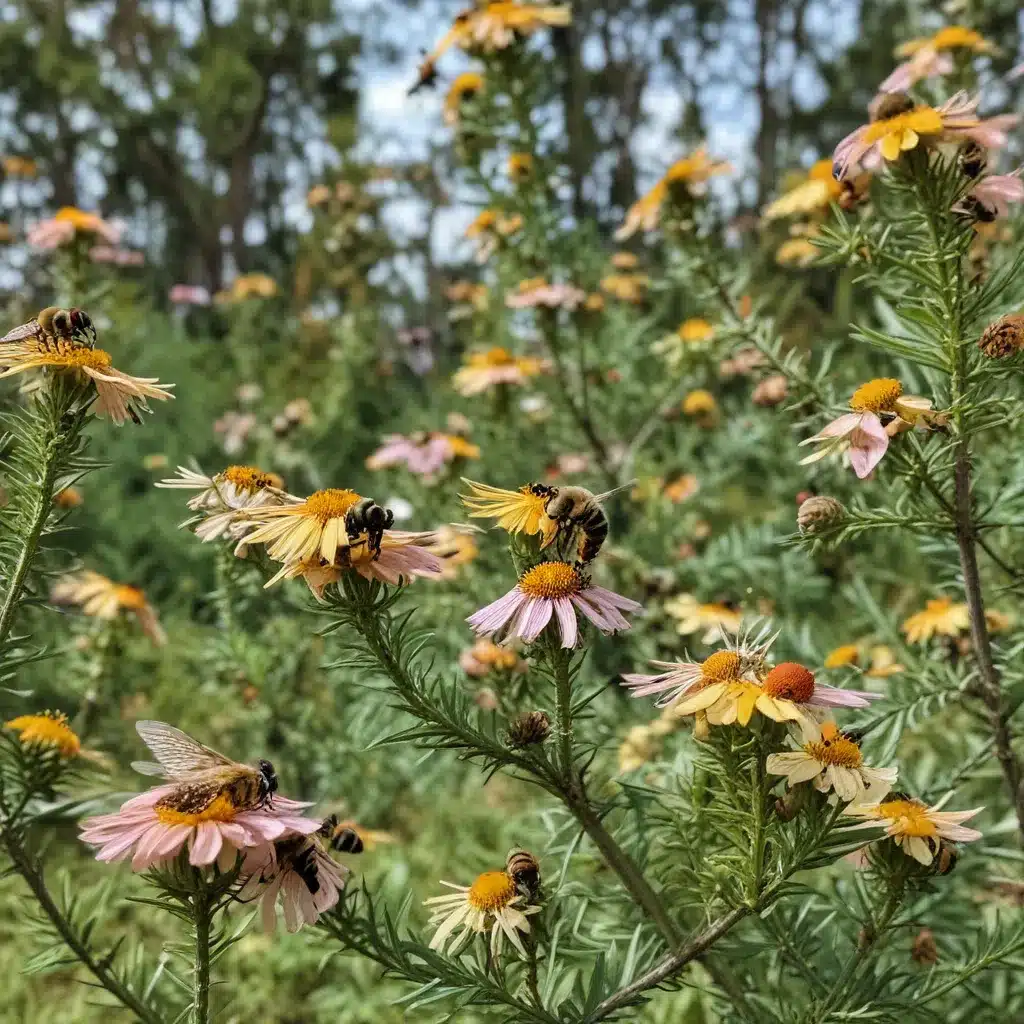
At Crooked Pines Farm, we believe that the fascinating creatures who pollinate our flowers and crops deserve our utmost attention and reverence. Pollinators—from the iconic honeybee to the delicate butterfly, from buzzing flies to fluttering hummingbirds—play a vital role in maintaining the health and diversity of our ecosystems.
Pollinator Diversity and Importance: The world of pollinators is both vast and enchanting. While bees are perhaps the most well-known, there are actually over 200,000 species of pollinating insects globally, including butterflies, moths, beetles, flies, wasps, and ants. These industrious animals are responsible for the reproduction of 75% of the world’s flowering plants, including many of the fruits and vegetables we enjoy. Without their tireless efforts, our farms, gardens, and natural landscapes would be drastically altered.
Ecosystem Services Provided by Pollinators: Pollinators don’t just keep our plants thriving—they are a vital component of healthy, functioning ecosystems. By moving pollen between flowers, they facilitate the production of seeds and fruits that feed countless other creatures, from songbirds to small mammals. Many of our native pollinators also serve as important food sources themselves, sustaining insect-eating birds, bats, and other wildlife. Pollinators help maintain soil fertility, support biodiversity, and even contribute to the beauty of our natural world.
Threats to Pollinator Populations: Tragically, pollinator populations are in steep decline worldwide due to a variety of human-caused threats. Habitat loss, pesticide use, climate change, and the spread of disease and invasive species have all taken a devastating toll. Some pollinator species, like the rusty patched bumblebee, are already listed as endangered. Protecting pollinators and their habitats is crucial for the future of our farms, gardens, and natural ecosystems.
The Enchanting World of Pollinator Species
Bees: The Iconic Pollinators: At the heart of the pollinator world are the bees. With over 20,000 known species, these industrious insects come in a remarkable array of shapes, sizes, and behaviors. From the familiar European honeybee to the solitary, ground-nesting alkali bee, each bee species plays a unique role in pollinating the plants around us. Their fuzzy bodies and amazing ability to sense floral resources make them exceptionally skilled pollinators.
Butterflies and Moths: Delicate Floral Visitors: With their vibrant, delicate wings, butterflies and moths captivate us as they flit from flower to flower. These lepidopterans use their long, slender proboscises to sip nectar, transferring pollen as they go. While butterflies are often active during the day, moths play a crucial nocturnal pollination role, drawn to the pale, fragrant blooms that open at night. Together, they add beauty and movement to our gardens and natural areas.
Other Pollinator Insects and Animals: Bees and butterflies may hog the spotlight, but they are far from the only important pollinators. Flies, such as the iridescent hoverfly, are significant pollinators, especially for small, simple flowers. Beetles, wasps, and even some small mammals like bats and hummingbirds also contribute to plant reproduction through their pollination activities.
Pollinator-Friendly Gardening Practices
Native Plant Selection and Cultivation: At Crooked Pines Farm, we champion the use of native plants in our gardens and landscaping. These species, which have evolved alongside our local pollinators, provide the most nutritious nectar and pollen resources. By cultivating a diverse array of native flowers, trees, and shrubs, we create a veritable pollinator paradise. Whether you have a sprawling farm or a tiny urban plot, incorporating native plants is one of the best ways to support pollinators.
Organic Pest Management Strategies: While many conventional pesticides can be devastating to pollinator populations, we take a different approach at Crooked Pines. By embracing organic pest control methods, such as introducing beneficial insects, using horticultural oils and soaps, and employing companion planting, we protect our pollinators while still maintaining healthy crops and gardens. It’s all about finding the right balance.
Creating Pollinator-Friendly Habitats: Pollinators don’t just need flowering plants—they also require appropriate nesting sites, overwintering areas, and sources of water. At our farm, we leave patches of bare ground for ground-nesting bees, maintain brush piles and standing dead trees for cavity-nesting species, and ensure a variety of microhabitats to meet the diverse needs of our winged visitors. By providing this comprehensive “pollinator habitat,” we give them the resources they need to thrive.
The Significance of Pollinator Conservation
Preserving Pollinator Populations: As stewards of the land, we have a responsibility to protect our pollinators. At Crooked Pines Farm, we are dedicated to implementing best practices that support thriving pollinator communities, from planting diverse native species to minimizing pesticide use. By ensuring the health and resilience of these vital creatures, we safeguard the future of our own farms, gardens, and natural landscapes.
Raising Awareness and Education: Of course, pollinator conservation extends beyond the boundaries of our farm. That’s why we’re passionate about sharing our knowledge and inspiring others to take action. Through our farm nature exploration programs, educational tips for kids, and community outreach efforts, we hope to cultivate a greater appreciation for the enchanting world of pollinators.
Community-Driven Conservation Initiatives: No one can tackle the pollinator crisis alone. That’s why we’re proud to collaborate with local partners, from conservation organizations to community gardening groups, to develop comprehensive strategies for pollinator protection. By working together, we can create a network of pollinator-friendly habitats and raise awareness throughout our region.
At Crooked Pines Farm, we are in awe of the vital role that pollinators play in sustaining the health and beauty of our world. From the buzzing of bees to the fluttering of butterflies, these enchanting creatures deserve our utmost respect and care. By embracing pollinator-friendly gardening practices, educating our community, and working together for conservation, we can ensure that the pollinators of today will be here to captivate and sustain us for generations to come.


